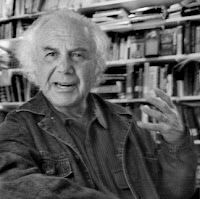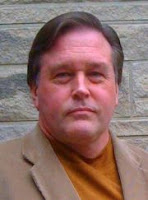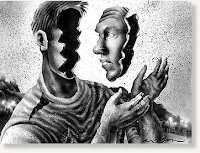Showing posts with label Fourth Way. Show all posts
Showing posts with label Fourth Way. Show all posts
Wednesday, August 15, 2012
The Fourth Way and Inner Christianity
Tonight on Talk Gnosis: The Fourth Way and Inner Christianity
"In all ancient teachings the first demand at the beginning of the way of liberation was: Know thyself." - G.I. Gurdjieff
http://www.youtube.com/user/gnosticnyc
Monday, August 6, 2012
Facing Our Obsessive Patterns: The roots of the "seven deadly sins"
This article, from Pastor Theodore Notthingham, pinpoints one of the essential differences between Inner Christianity and modern Western Christianity. What we know as the "7 deadly sins" weren't sins at all, but "distracting and afflictive thoughts" that undermine spiritual life. The shift in perspectives is a symptom of the transition of Christianity from a school of transformation and liberation to a tool of the Empire:
The full article is here
This idea of the "seven deadly sins" is not original to the Catholic Church and is a reduction and distortion of the spiritual teaching that came before it and that has largely been lost to us. In order to recover something of the original meaning, we must return to the fourth century and the middle-eastern lands where these teachings germinated. It was the Greek monastic theologian Evagrius of Pontus who first drew up a list of eight human "passions": gluttony, lust, avarice, sadness, anger, acedia (sloth), vainglory, and pride. For Evagrius, these passions represent an increasing fixation with the self, with pride as the most egregious of them. These passions are brought into play by thoughts or images which Evagrius does not name "sins" or "vices" but rather logismoi, meaning distracting or an afflictive thoughts. These thoughts might be identified in our day as deeply ingrained obsessive patterns that are reinforced by habit.
These obsessive thoughts undermine the spiritual life and require recognition and resistance. They are not seen as a moral failing calling for repentance. Evagrius held that spiritual progress depends on close observation of thoughts as they arise in the mind. Thoughts are symptoms, not sins. They buzz around in the mind looking for cracks in the heart – points of weakness and vulnerability. Their Greek name, pathi (pathology), suggests that a person is brought by them to a state of passivity and slavery. In fact, they overcome the will, so that the person victimized by his or her passions no longer has access to their free will.
Ancient writers give us a surprisingly contemporary psychotherapy of the human soul. Nilus the Ascetic writes that the stomach, by gluttony, becomes a sea impossible to fill – a good description of any passion. The objects which the passions look for cannot satisfy them because objects are finite and as such do not correspond to the unlimited thirst of the passions.
The full article is here
Sunday, August 5, 2012
'Magnetisation' to God
The Praxis Research Institute has a excellent collection of articles on the Christian Fourth Way and Inner Christianity, including a series on The Magnetic Centre.
Read the series at the Praxis Institute website.
The idea of 'magnetism to God' was first applied to this inner phenomenon, so far as we know, in the second half of the nineteenth century by the Russian hermit Saint Theophan the Recluse, who around 1860-1870 speaks sometimes about magnetisation to God, and sometimes about Gravitation to God.
Theophan was a major investigator in this field of the Christian interior life. Under the Aegis of the Synod of the Russian church he spent seven years researching sources in the Middle-East before he became a bishop, and then a hermit. He travelled round the monasteries of Syria, Egypt and Palestine, finding manuscripts which he had copied and shipped over the Russian, where he translated them...
This idea of magnetisation to God clearly expresses the higher stages of hesychastic prayer, prayer of stillness, which concerns the stage where, when the psyche reaches a certain point on the path, it is then 'rapt in God,' being drawn away from the attraction of the world by the glory given by God within him.
Read the series at the Praxis Institute website.
Monday, July 16, 2012
How to get free?
From an excellent interview with Professor Jacob Needleman:
full interview here
How to get free? It’s hard to do, but in a way, it’s easy, if you know what it serves. Just to take a moment sometimes and let yourself step back from your own thoughts. I tried this with my students, and this is powerful.
One student who tried it — most of them sort of resisted it — when she got angry with somebody at a dry-cleaning place, and she said: “Oh, this is what Professor Needleman said! I’m going to look at my anger, look at my annoyance and step back from it.” And she was amazed that she became two people, the person who was angry and the other person who was calmly looking at her anger. And then when that happened, the anger itself subsided. Now, what she said after trying that stunned me. She said: “I had no idea my mind could do that.” Are we raising a nation, a culture, of people who don’t know this fundamental power of the human mind to step back from itself, to just look at itself? That power is the source of the beginning of the freedom from the ego. But we don’t value that as a culture. We value it when people get very so-called committed and passionate and are ready to strangle the other person. Do you see what I’m saying?
full interview here
What we are seeking
 And what we are seeking is a body, a life on earth, in which our actions and behavior serve the higher impulses and intentions, the higher feelings, that constitute the heart of true human virtue. We are not simply searching for an improved version of moralist automatism nor for childish self-assertion masquerading as freedom. In a breathtakingly real sense, we are searching for a new kind of body, a body that has a new aim, a new purpose: voluntarily to serve the Good. And, to compound the mystery, in the search for a new kind of body within ourselves, there exists the possibility of discovering a new heart, source of love within ourselves that we have perhaps glimpsed within our lives, as in the legends where the seeker or the hunter has but one fleeting glimpse of a serenely beautiful face or a great winged being-a glimpse which, when understood, has the power to change entirely the direction of one’s life.
And what we are seeking is a body, a life on earth, in which our actions and behavior serve the higher impulses and intentions, the higher feelings, that constitute the heart of true human virtue. We are not simply searching for an improved version of moralist automatism nor for childish self-assertion masquerading as freedom. In a breathtakingly real sense, we are searching for a new kind of body, a body that has a new aim, a new purpose: voluntarily to serve the Good. And, to compound the mystery, in the search for a new kind of body within ourselves, there exists the possibility of discovering a new heart, source of love within ourselves that we have perhaps glimpsed within our lives, as in the legends where the seeker or the hunter has but one fleeting glimpse of a serenely beautiful face or a great winged being-a glimpse which, when understood, has the power to change entirely the direction of one’s life.- Jacob Needleman, Excerpt from Why Can't We Be Good?
Tuesday, June 5, 2012
The chief obstacle
The chief obstacle to the attainment of self-consciousness is that we think we have it. One will never get self-consciousness so long as one believes that one has it. There are many other things we think we have, and because of this we cannot have them. There is individuality or oneness —we think we are one, indivisible. We think we have will, or that if we do not have it always, we can have it, and other things. There are many aspects to this, for if we do not have one thing, we cannot have another. We think that we have these things, and this happens because we do not know the meaning of the words we use. - P.D. Ouspensky
Something real...
It is necessary to catch fire. It is necessary to see we are in the presence of something real - yes, real, but finely made, and very gentle, very delicate, and beautiful. - Maurice Nicoll
Saturday, April 28, 2012
"Esoteric knowledge can be given only to those who seek, only to those who have been seeking it with a certain amount of consciousness, that is, with an understanding of how it differs from ordinary knowledge and how it can be found . . .
"This preliminary knowledge can be gained by ordinary means, from existing and known literature, easily accessible to all. And the acquisition of this preliminary knowledge may be regarded as the first test. Only those who pass this first test, those, that is, who acquire the necessary knowledge from the material accessible to all, may hope to take the next step, at which point direct individual help will be accorded them. A man may hope to approach esotericism if he has acquired a right understanding from ordinary knowledge, that is, if he can find his way through the labyrinth of contradictory systems, theories and hypotheses, and understanding their general meaning and general significance. This test is something like a competitive examination open to the whole human race, and the idea of a competitive examination alone explains why the esoteric circle appears reluctant to help humanity. It is not reluctant. All that is possible is done to help men, but men will not or cannot make the necessary efforts themselves. And they cannot be helped by force."
- P.D. Ouspensky. A New Model of the Universe
Thursday, April 19, 2012
Self Observation
"The object of self-observation, as it is said in the Work, is to let a ray of light into oneself. The next thing that is said is that when light is let in in this way many things begin to change of themselves. It is the light of consciousness that begins to change things. For this reason it is said in the Work that the light will cure us. Have you ever thought what it means, this extraordinary phrase: "the light will cure us"? When I first heard it said to me by Gurdjieff, it had such an emotional effect upon me that I was unable to speak to anybody for some time afterwards." - Maurice Nicoll
Thursday, March 29, 2012
“Man is a machine which reacts blindly to
external forces and, this being so, he has no will, and very little
control of himself, if any at all. What we have to study, therefore, is
not psychology-for that applies only to a developed man-but mechanics.
Man is not only a machine but a machine which works very much below the
standard it would be capable of maintaining if it were working
properly.”
― P.D. Ouspensky
― P.D. Ouspensky
Friday, March 2, 2012
In order to be Christians we must be able 'to do.'
"First of all it is necessary to understand that a Christian is not a man who calls himself a Christian or whom others call a Christian. A Christian is one who lives in accordance with Christ's precepts. Such as we are we cannot be Christians. In order to be Christians we must be able 'to do.' We cannot do; with us everything 'happens.' Christ says: 'Love your enemies,' but how can we love our enemies when we cannot even love our friends? Sometimes 'it loves' and sometimes 'it does not love.' Such as we are we cannot even really desire to be Christians because, again, sometimes 'it desires' and sometimes 'it does not desire.' And one and the same thing cannot be desired for long, because suddenly, instead of desiring to be a Christian, a man remembers a very good but very expensive carpet that he has seen in a shop. And instead of wishing to be a Christian he begins to think how he can manage to buy this carpet, forgetting all about Christianity. Or if somebody else does not believe what a wonderful Christian he is, he will be ready to eat him alive or to roast him on hot coals. In order to be a good Christian one must be. To be means to be master of oneself. If a man is not his own master he has nothing and can have nothing. And he cannot be a Christian. He is simply a machine, an automaton. A machine cannot be a Christian. Think for yourselves, is it possible for a motorcar or a typewriter or a gramophone to be Christian? They are simply things which are controlled by chance. They are not responsible. They are machines. To be a Christian means to be responsible. Responsibility comes later when a man even partially ceases to be a machine, and begins in fact, and not only in words, to desire to be a Christian."
- G.I. Gurdjieff
- G.I. Gurdjieff
Subscribe to:
Posts (Atom)








